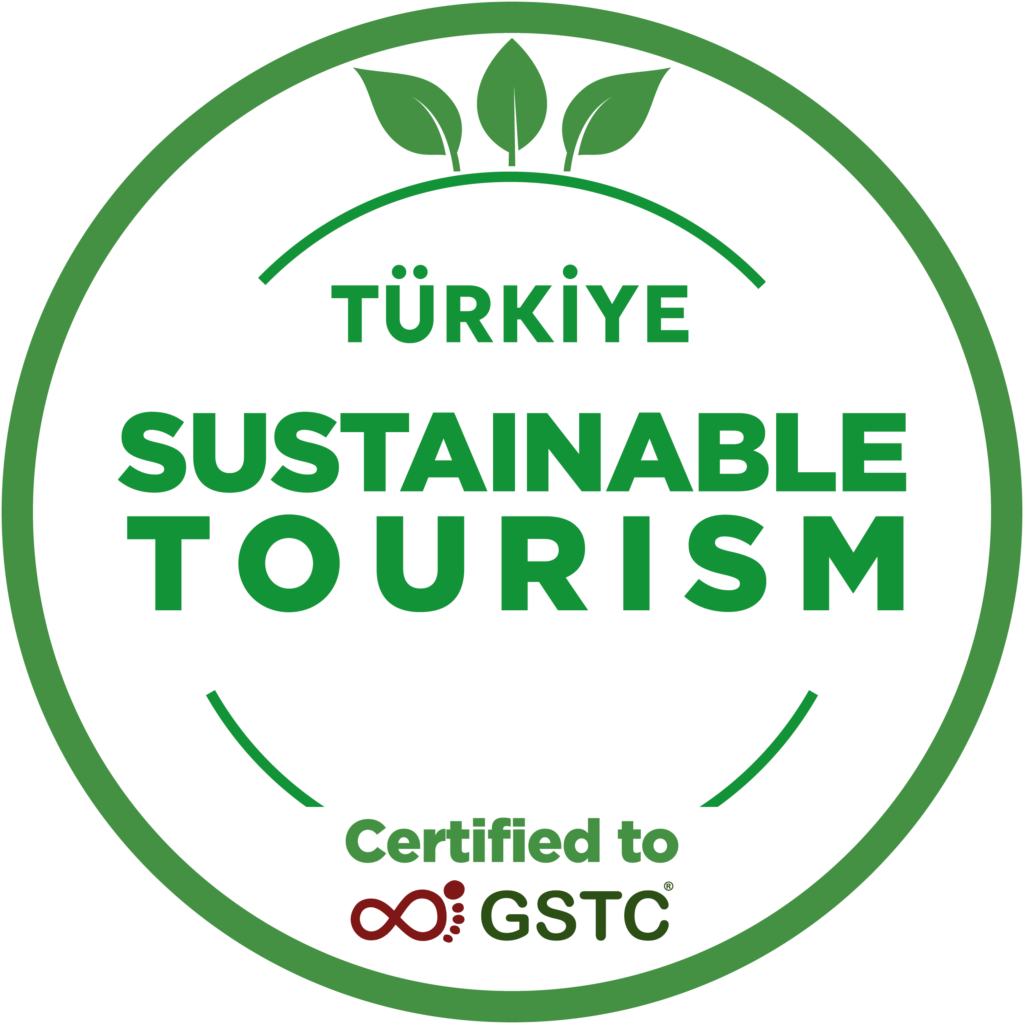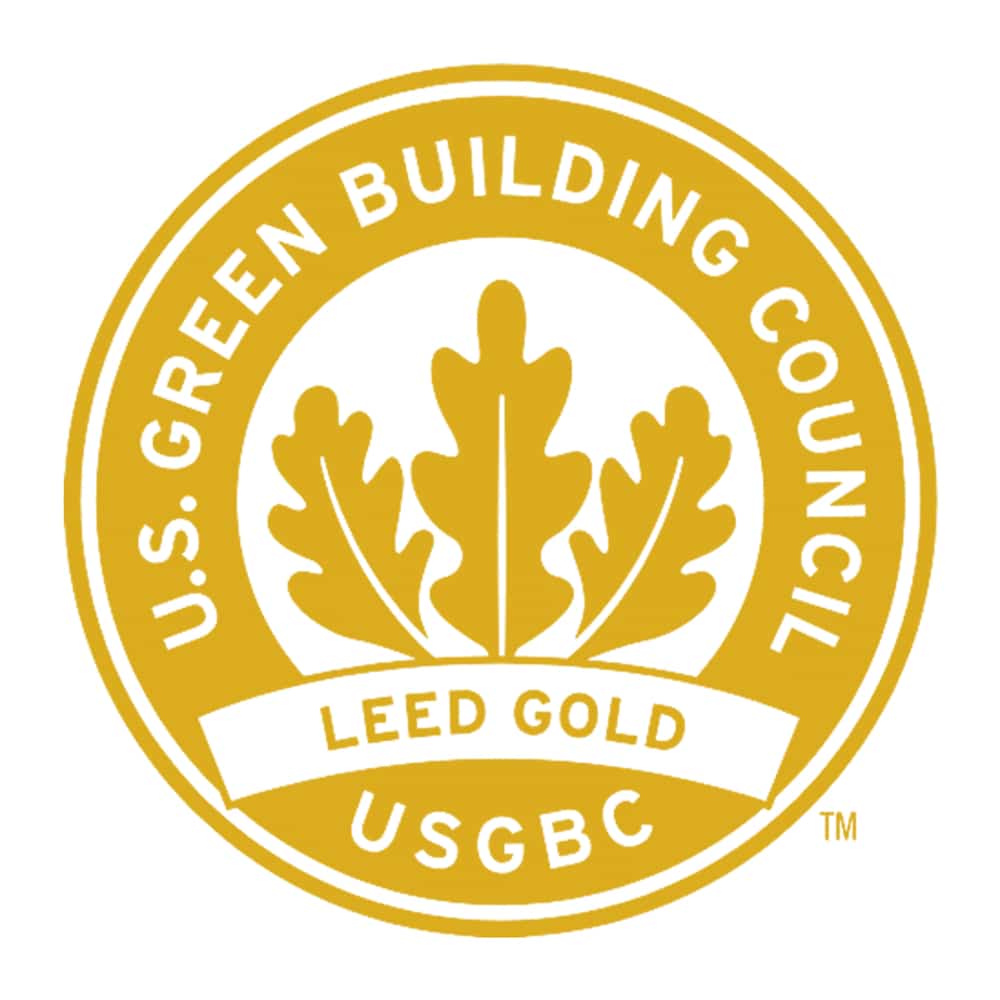Sustainability
Our hotel actively participates in the Linens For Life project, focusing on social benefits and sustainability.

Sustainable Tourism Certification
This certification recommended by Türkiye Tourism Promotion and Development Agency is issued by Bureau Veritas Certification Hong Kong Limited.
Bureau Veritas Certification Hong Kong Limited is accredited by GSTC and its accreditation coverage is published at www.gstcouncil.org

LEED Gold Certification Award Efforts
Leadership in Energy and Environmental Design (LEED) is an environmentally friendly, energy-efficient, and healthy building certification developed by the U.S. Green Building Council (USGBC).
With the mission of providing an environmentally conscious and sustainable accommodation experience, our hotel has been implementing all its processes by LEED (Green Building) standards since the construction phase. By 2025, our hotel will qualify for the LEED Gold Certification, offering guests an eco-friendly stay with its high standards in energy efficiency, water conservation, and healthy living spaces.
Participation in the Linens For Life Project
Green Vehicle Project
Bicycle Facilities: Bike Lanes and Parking Areas
Local and Cultural Cuisine
Use of EPD-Certified Materials in Construction
Energy Management
Reducing Light Pollution
Protecting Biodiversity and Endemic Species
At XO Cape Arnna, we are actively committed to preserving biodiversity and protecting endangered and endemic species. We inform our guests and staff on this issue, support regional associations, and collaborate on their conservation efforts.
Endangered and Endemic Species of Fethiye
Sand Lily (Pancratium maritimum)
This rare and endangered plant grows on coastal dunes. It can be seen in Karaot and Ölüdeniz during August–September. It is under protection due to habitat destruction.
Caretta Caretta (Loggerhead Sea Turtle)
An iconic species of the Mediterranean. It nests on the beaches of Çalış, Karaot, İnlice, and Karataş in Fethiye. Due to habitat degradation, it is protected globally.
Dusky Grouper (Epinephelus marginatus)
One of the largest yet most vulnerable bony fish in the Mediterranean. Its numbers have declined due to late sexual maturity. It can still be found off the coast of Fethiye, but fishing poses a major threat.
Wild Goat (Capra aegagrus)
This species lives in rugged mountainous areas and is declining due to hunting and habitat loss. In Fethiye, it can only be observed in the high elevations of Babadağ.
Fethiye’s Endemic Species
Sweetgum Tree (Liquidambar orientalis)
An endemic tree that grows only in Southwestern Anatolia and can live for 200–300 years. Its oil is used for medicinal and aromatherapeutic purposes. Common in forests around Fethiye.
White Autumn Daffodil (Sternbergia candida)
A white-flowered daffodil species that grows naturally only around Fethiye. It is forbidden by law to collect its bulbs from nature.
Morel and Saffron Milk Cap Mushrooms
Morels, which appear in spring, and saffron milk cap mushrooms, seen in autumn, are among the prized natural edibles of Fethiye’s forests. They are especially common in post-wildfire areas.
How Can We Protect the Caretta Caretta?
Please do not light fires on the beach — this may harm sea turtle eggs and threaten their natural habitat. Avoid using umbrellas or sunbeds in nesting areas, as they may damage or obstruct nests. Leaving items on the beach at night can block hatchlings from reaching the sea. Littering on the beach or in the sea, especially plastic waste, can be fatal to sea turtles. Refrain from touching hatchlings or picking them up by the belly — this may negatively affect their development. Do not pour water on nesting sites, and if you notice a nest, report it to the authorities so proper protection measures can be taken.
How Can We Protect Sand Lilies?
Sand lilies are endemic plants that grow only in specific coastal areas and must be protected. Picking, uprooting, or damaging them poses a serious threat to biodiversity and is also illegal. Since their roots lie close to the surface, even stepping on them can cause harm. Please admire these delicate flowers without touching — take only photographs, and leave them in nature. Keep the beaches clean; litter, chemicals, and human impact threaten their survival. Protecting sand lilies is our shared responsibility. If you see any harm being done, please notify the authorities.


